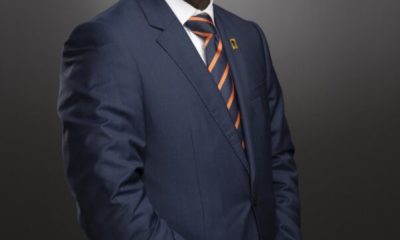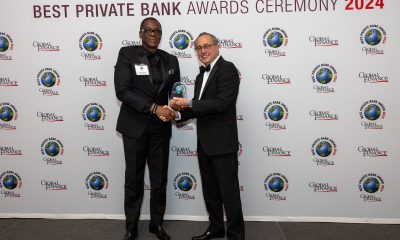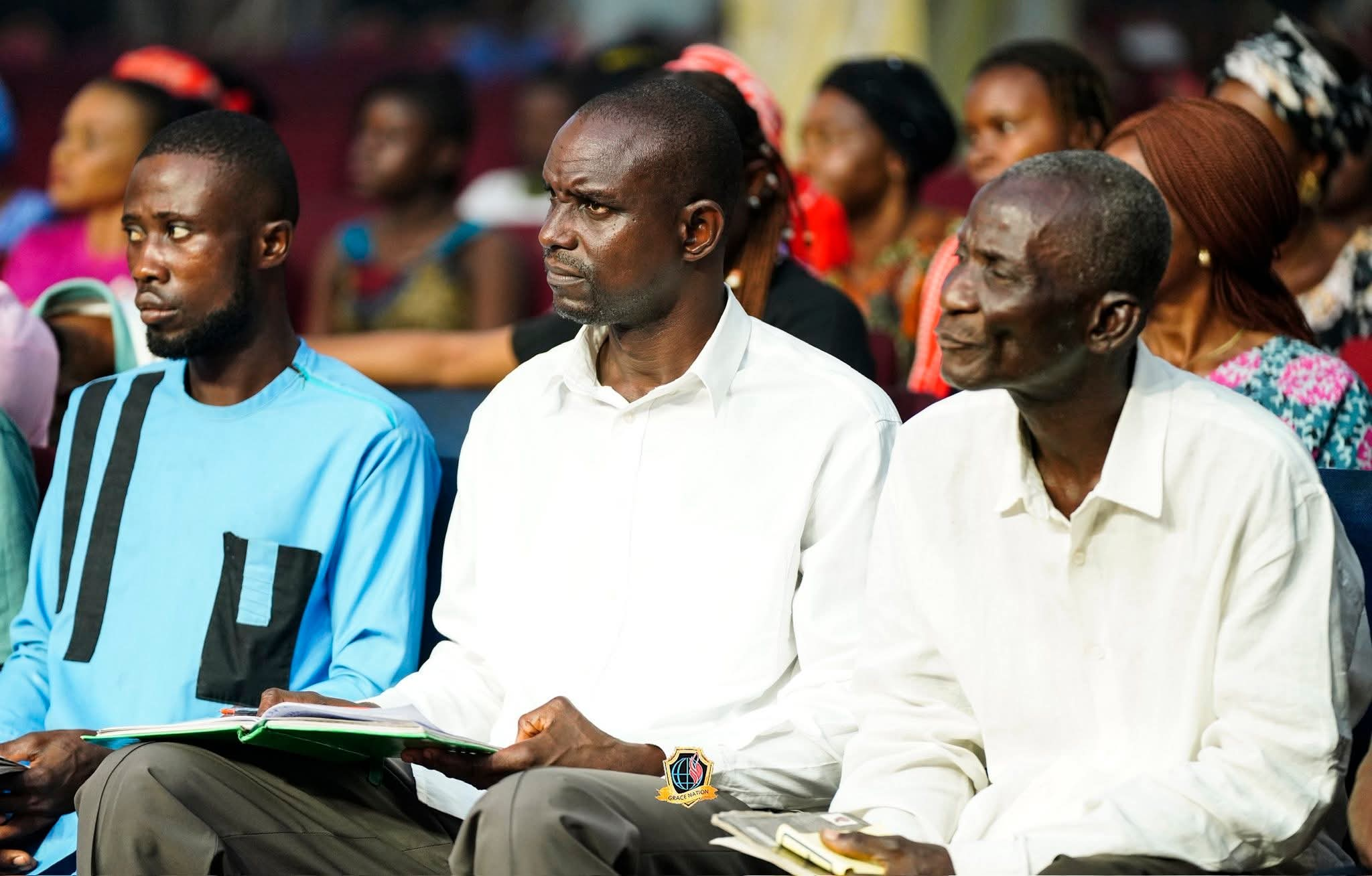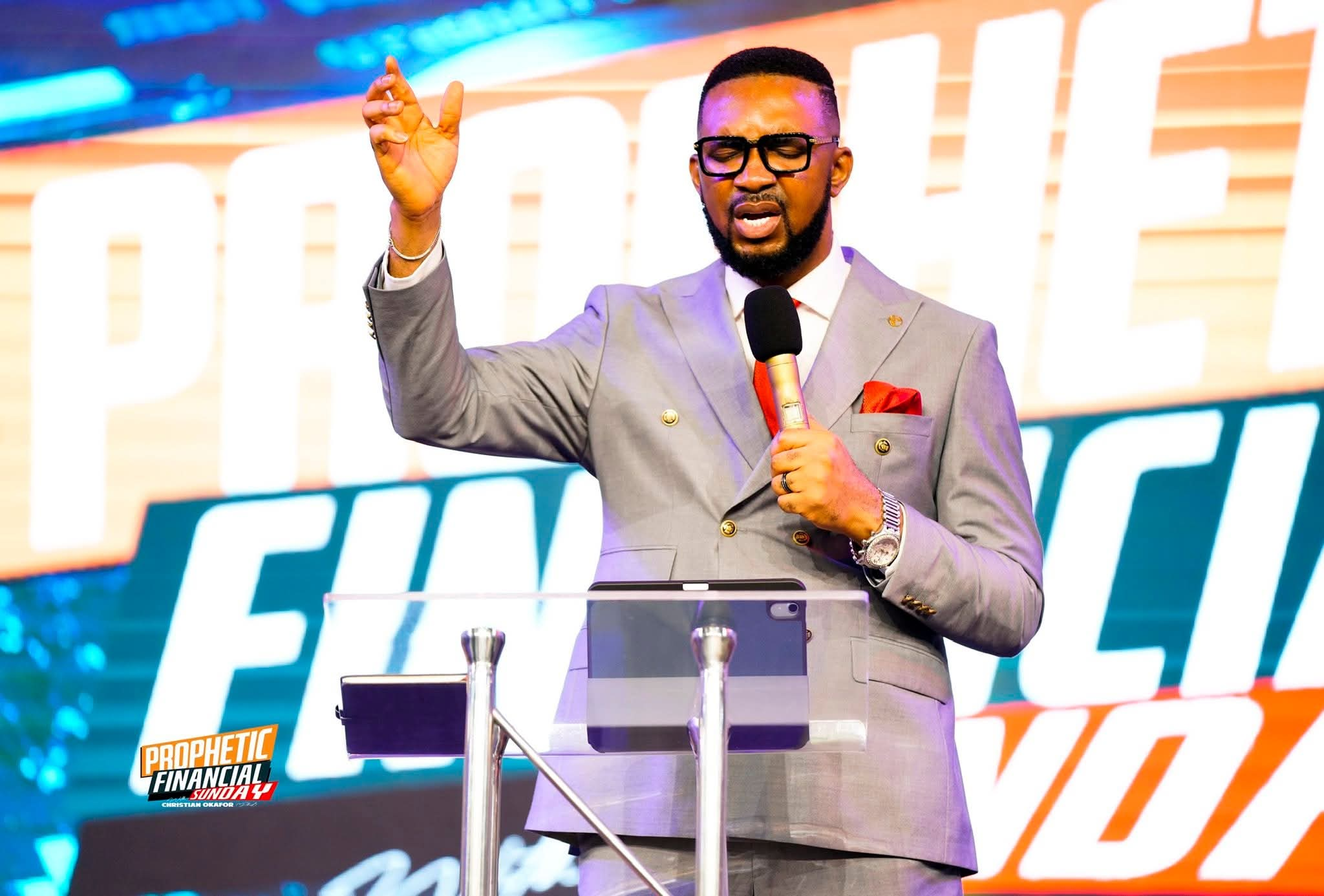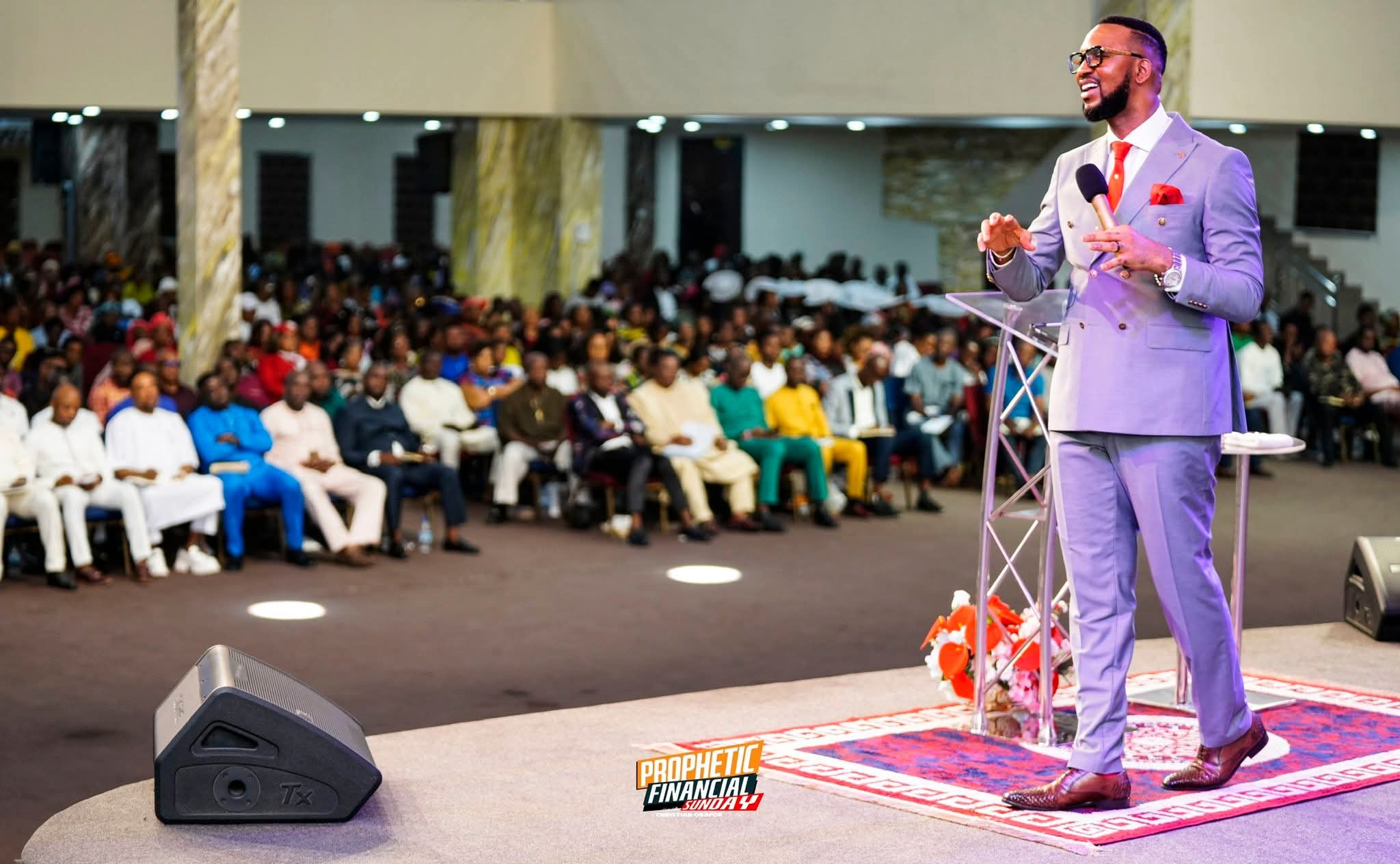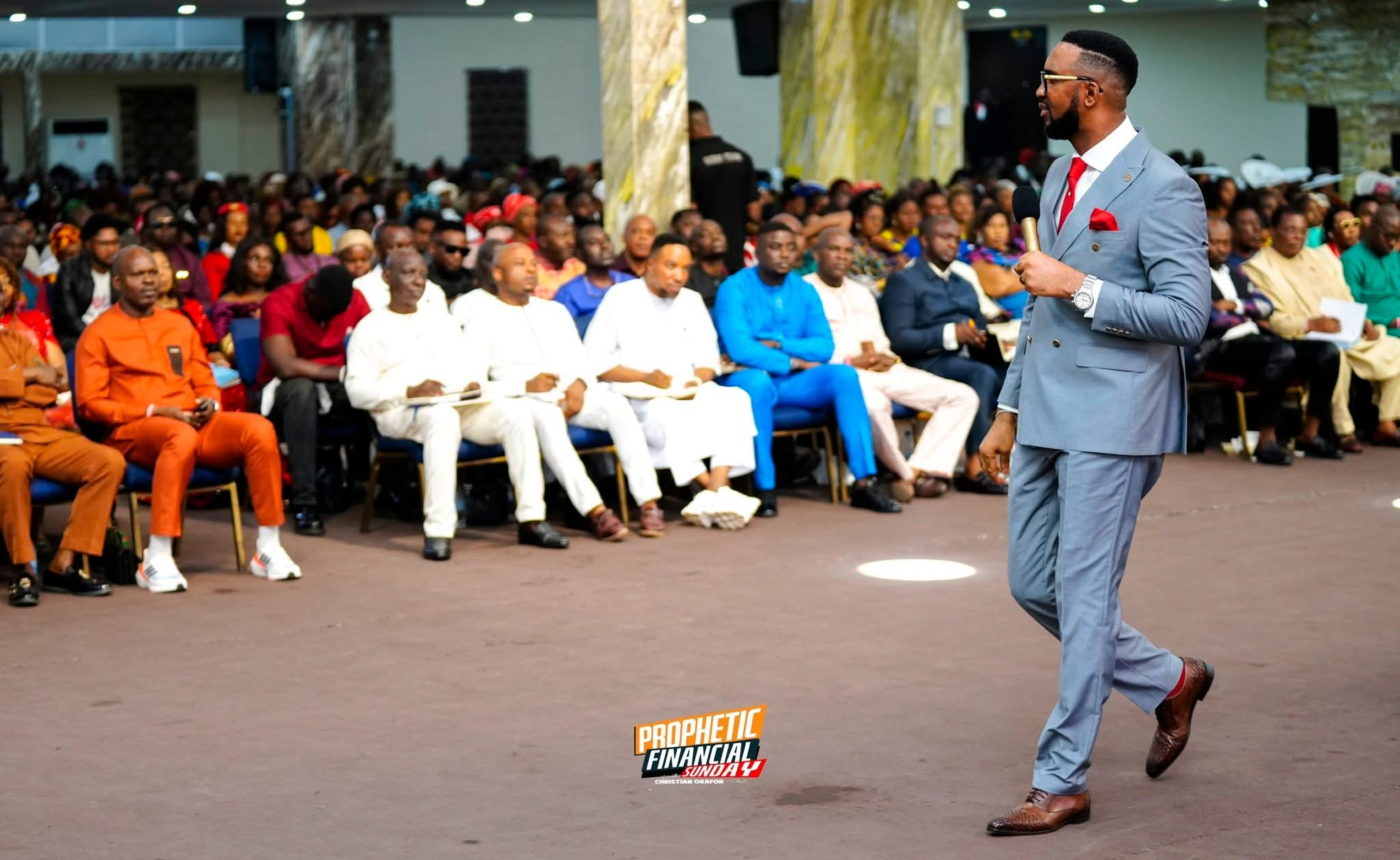celebrity radar - gossips
ADESOLA ADEDUNTAN, CEO, FIRSTBANK – HOW TO DO WELL BY DOING GOOD
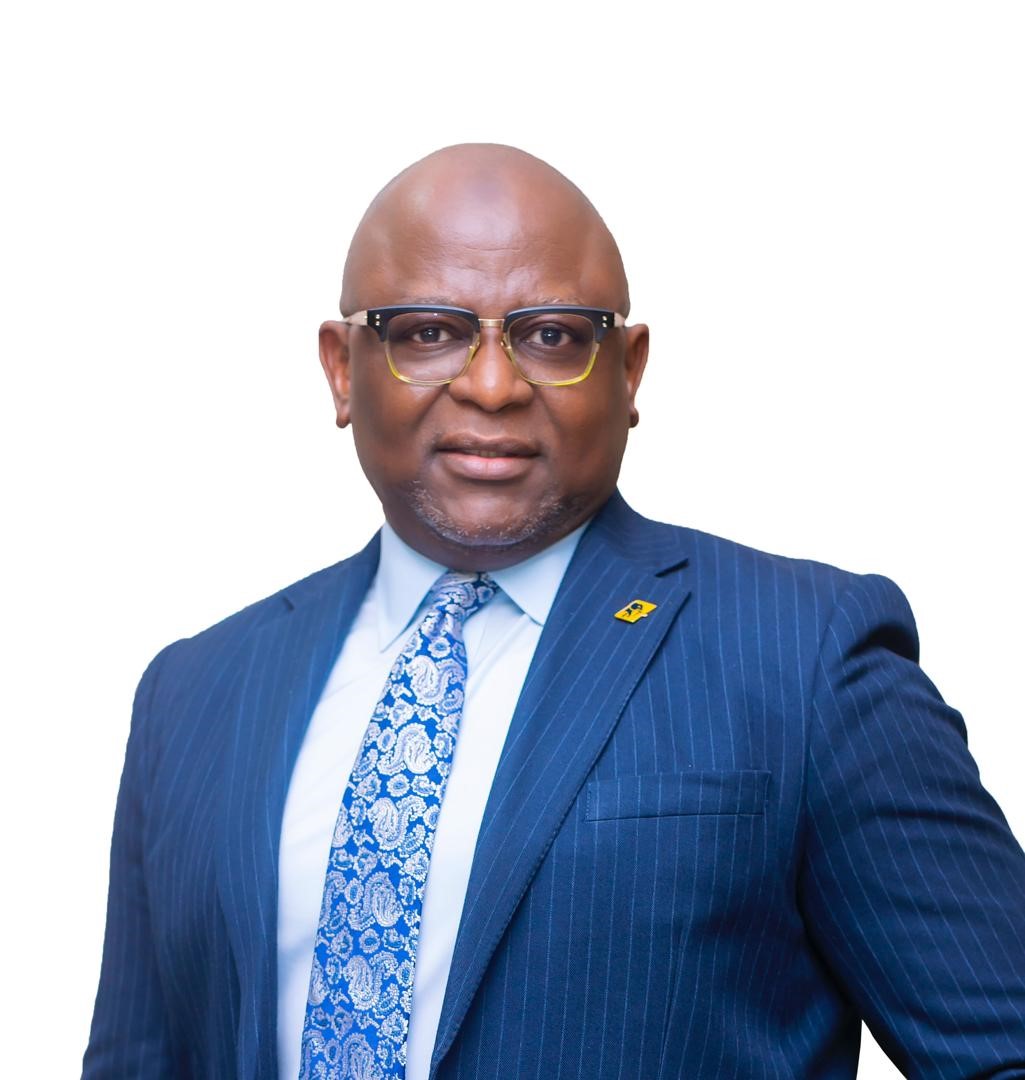
I travel to meet Dr Adesola Adeduntan in Edinburgh, where he has been invited to give a keynote address at the Edinburgh School of Business about the role of financial institutions in driving financial inclusion.Fittingly, as you land in Edinburgh, you are greeted by billboards from different investment funds advertising their credentials in responsible and sustainable investment and how environmental, social and governance (ESG) considerations underpin their activities.
With economists and politicians questioning capitalism and the Western liberal model, today the emphasis is very much on a stakeholder-based approach, whereby growth and prosperity is more equally attributed and takes into consideration the needs of the wider community. Sustainable investment has become de rigueur among corporate jargon.
Dr Adesola Kazeem Adeduntan, CEO of First Bank of Nigeria, is a veteran in the Nigerian banking and corporate world. His overriding message, clearly expressed throughout his interview responses, and also at the various talks he gave during the day (at the Business School and at a law firm), is on the importance of doing good if you’re to do well – financially – in Nigeria and indeed, Africa.
A telling sign
FirstBank is actually the oldest bank in Africa. It was established in Lagos in 1894 as the Bank of British West Africa. Last year it celebrated its 125th anniversary. It is also the biggest bank in Nigeria in terms of assets and branch network.
For Adeduntan, a veterinary doctor by training, it becomes clear, once we have settled down for our discussion, that the institution’s longevity is a telling sign: it not only proves the bank’s resilience, it also shows that it has the right structures in terms of governance and the right business model, with the country’s development at its core. The theme of the anniversary celebrations was about how the bank has been woven into the fabric of Nigerian society.
The clear message to the industry is that while it is possible to make a quick buck, you can only enjoy the sort of longevity it has if you conduct your business with the interests of the country at heart.
Nonetheless, it’s apparent Adeduntan does not want to dwell too long on past glories. Using the analogy of a car, he says that there is a reason why the windshield is large whilst the rear-view mirror is small.
The challenge of fintech
As in most sectors, traditional ways of doing business have been coming under increasing disruption from ever-evolving technology. The banking industry is no exception and seems to be under siege from an expanding fintech onslaught.
I ask him if he is worried that non-financial companies will be entering the banking sector, especially given the recent change in regulation by the Central Bank that allows non-traditional finance institutions, namely mobile operators, to enter the fray.
He says he is not worried as his bank has one of the best defined strategies when it comes to financial inclusion and that it has the largest digital banking network in Nigeria.
Much of this has been developed through the bank’s FirstMonie Agents system: 46,000 agents represent the bank across the country. Currently, 9m customers transact on their USSD platform (by mobile phone, both smart and analogue) in addition to 3m customers transacting on the FirstMobile platform.
The agent network, the biggest of its kind in the country, enables the bank to provide services to the most remote rural communities; and because it doesn’t need to have an extensive branch network, it means that these services can be supplied at a fraction of the cost of a ‘legacy’ banking model.
Financial deepening
Adeduntan prefers to use the phrase ‘financial deepening’ when talking about the unbanked. Financial inclusion has increased from the low 20s to approximately 40% in Nigeria over the past seven years and is expected to double to the mid-80s within the next five years.
He says ‘financial deepening’ occurs when financial inclusion starts playing an important role in economic development. It’s about layering additional products on the current agency banking network – services such as micro-credit, micro-insurance and micro-pension.
The aim is to provide value-added services whilst at the same time increasing the savings rate; this aspect, which is critical in driving investment rates, has been one factor behind Asia’s rapid growth.
It is in this area, he says, that the bank has a vital role to play and a distinct advantage over new entrants. Technology, he emphasises, will play a crucial part in broadening financial inclusion. In addition, it is important to partner and collaborate with different stakeholders such as NGOs and other organisations dealing with the bottom of the pyramid, to help them reach out to different groups and also improve financial literacy.
Last year saw a boom in venture capital investment into Nigeria. For example, $400m was invested in a number of fintech start-ups during November alone. Is he not worried that these fintech players, with their lower cost base and ability to use technology, AI and big data to overcome traditional hurdles, are going to take the majority share of the pie when it comes to servicing the unbanked?
He says that will only be the case if the banks do not manage to reinvent themselves. In Edinburgh, he actually spent a large part of his day visiting tech hubs around the university in the city and speaking to fintech companies. FirstBank, he adds, has a number of partnerships with fintechs as well as its own Digital Laboratory developing new solutions for the bank.
Nevertheless, he firmly believes that the ‘legacy banks’ will still continue to play a very central role, especially “in this part of the world where banks are quite dominant and they have significant buying power”.
In terms of settlements and deposits, he sees many of these new players as partners they can work with, even if in some areas they will be competitors.
Scope for growth
Despite the impressive strides made by the banking sector in Nigeria, Adeduntan believes there is still a massive scope for growth for the sector. He points out that none of the country’s top banks have made the Top 10 Banks in Africa list, despite Nigeria being the continent’s largest economy.
He thinks that with the signing of the African Continental Free Trade Agreement, “we are entering a very interesting period for the banking sector, not only in Nigeria but Africa in general”.
On the domestic front, does he expect further consolidation? “Within certain thresholds,” he answers. “Anything that would allow the strengthening of the entire banking sector, I am sure the Governor of the Central Bank would be positive about.”
He also points to demographics and the high rate of the unbanked as great opportunities for the growth of the sector continentally. “According to UNICEF, two billion babies will be born in Africa in the next 30 years,” he says. “And in places like DRC [where FirstBank has a presence] financial penetration is as low as 5%.” Put the two sets of figures together and, in theory at least, you get vast opportunity. But he adds the all-important caveat that demographics are only good if managed properly.
Supporting national champions
It hasn’t all been plain sailing for the bank, however. Adeduntan inherited a bank with several large exposures in the oil & gas and energy sectors, at a time when the oil & gas prices fell considerably, resulting in the devaluation of the naira against the dollar.
He says his management weathered the storm, reduced NPL levels to under double digits, and has strengthened the risk infrastructure, thus enabling the bank to better deal with cyclical downturns in future.
Discussing the role of large companies in the commercial landscape, Adeduntan says it is essential to have big banks like FirstBank, just as it is vital to have national champion companies that have the scale and wherewithal to make transformative investment. Such companies require financial institutions of similar scale to support them. The Dangote Group’s investment into what will become the continent’s largest oil refinery is a case in point, he adds.
Role of the Central Bank
We move on to the regulator and the role of the Central Bank. Does he think that it is too interventionist, dictating how much banks should lend, where they should place their assets?
Adeduntan refused to be drawn into criticism of the regulator, with whom he says he, and other bank CEOs, have a strong relationship. But he did say that the role of a central bank in the development of an emerging economy is clearly different from the role of a central bank in a developed economy.
“It is not unusual that the Central Bank intervenes in critical sectors allied to the loan to deposit ratio. It’s about economic growth; it’s about development; it’s about channelling credit in sectors that are very important for the national economy.
“Let us take agriculture – again, we are one of the biggest lenders into that sector. We found the Central Bank intervention in some of those critical sectors extremely useful and not just for us as a bank, but for the country as a whole. When you look at intervention in agriculture, you have to put it in the context of the size of the population. Nigeria is a country of 200m people today. The business of feeding 200m people is a strategic business. Everything that is being done to ensure that at least we are self-sufficient in food production is strategically important. We find the Central Bank intervention in those areas quite useful and of national importance.”
He reflected the positive attitude of many Nigerian entrepreneurs to the country’s future. He says he has a lot of time for the Economic Advisory Council – composed of credible business leaders and economists – that has been put together by President Muhammadu Buhari. And despite reports that the government is not economy-minded, he thinks that it is a pro-business government.
Ethical banking
It is nearly 10.00 in the evening when we finish our talk, his day having started at 07.30am. We go back to sustainability and the role of financial services to make sure they are lending to institutions that are ethical about their business and operating in a sustainable manner.
He says that the journey has started even if it is still early days. “But ultimately,” he says, “this is where we are headed. The Nigerian Sustainable Banking Principle speaks to this particular question. I think it’s evident from the points that I’ve made today, you can say that FirstBank is a bank that is happy to forego a few basis points in terms of its net margins, if that means it is contributing to development in a more ethical and sustainable way.
“We’ve always made a point that profitability is very important for us at FirstBank, but economic growth and national development is equally very important and speaks to the sustainability question.”
Culled from African Banker
celebrity radar - gossips
Spiritual Reality: Wicked People Are Possessed by Wicked Spirits — Dr. Christian Okafor
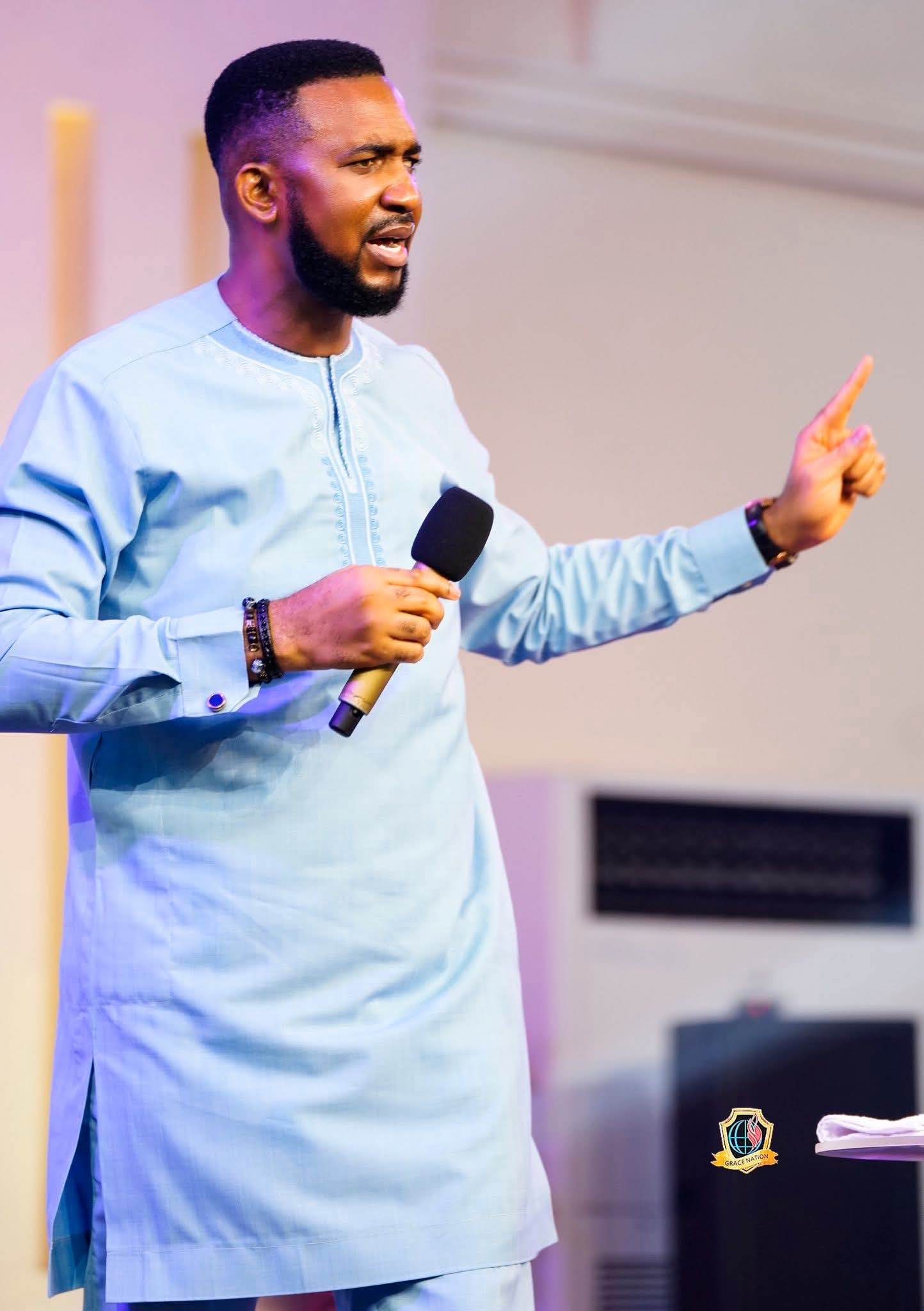
Spiritual Reality: Wicked People Are
Possessed by Wicked Spirits — Dr. Christian Okafor
…..“You don’t need to offend them before they attack you.”
…..“Your only true help comes from God.”
Demons are strategic and calculating. They detect threats quickly and position themselves to resist any power that may expose or overpower them.
According to the Generational Prophet and Senior Pastor of Grace Nation Global, Christian Okafor, spiritual intelligence operates both in light and in darkness—and believers must understand this reality.
Dr. Okafor delivered this message on Thursday, February 19, 2026, during the midweek Prophetic, Healing, Deliverance and Solutions Service (PHDS) held at the international headquarters of Grace Nation Worldwide in Ojodu Berger, Lagos, Nigeria.
The Operations of Demons
Teaching on the subject “Spiritual Reality” with the subtitle “Operations of Demons,” the Man of God explained that when demons possess individuals, their behavior changes. Such people may attack, bully, or resist those sent by God to help them, unknowingly rejecting divine assistance and prolonging their struggles.
“You don’t need to offend a demon before it attacks you,” he said. “What you carry is enough to provoke opposition. The greater your potential, the greater the battle.”
Dr. Okafor noted that many believers misinterpret battles as signs that God has abandoned them. However, he explained that some battles are permitted for growth, training, and divine glorification.
According to him, God may allow certain confrontations so that believers understand spiritual warfare and emerge stronger.
“Some battles are necessary,” he emphasized. “They push you into your turning point.”
He further stated that God does not respond to lies, blackmail, or bullying. He responds to His Word. Therefore, opposition is not proof of God’s absence, but often evidence of destiny at work.
The Weapon Against Demonic Attacks
Addressing solutions, Dr. Okafor described prayer as the strongest weapon against satanic operations.
“Prayer is the license that invites God into your battles,” he declared. “God does not intrude—He responds to invitation.”
According to the Apostle of Altars, understanding the principles and discipline of prayer enables believers to receive divine strategies for overcoming demonic resistance. Without prayer, he warned, spiritual help cannot be activated.
“You cannot receive help without God,” he concluded. “And you cannot engage God without prayer.”
Manifestations at the Service
The midweek gathering was marked by a strong move of the Spirit, with testimonies of deliverance, miracles, restoration, and solutions to various challenges presented before God. Several individuals reportedly committed their lives to Christ during the service.
celebrity radar - gossips
Kingdom Advancement: God Does Not Confirm Lies or Gossip — He Confirms His Word .” — Dr. Chris Okafor
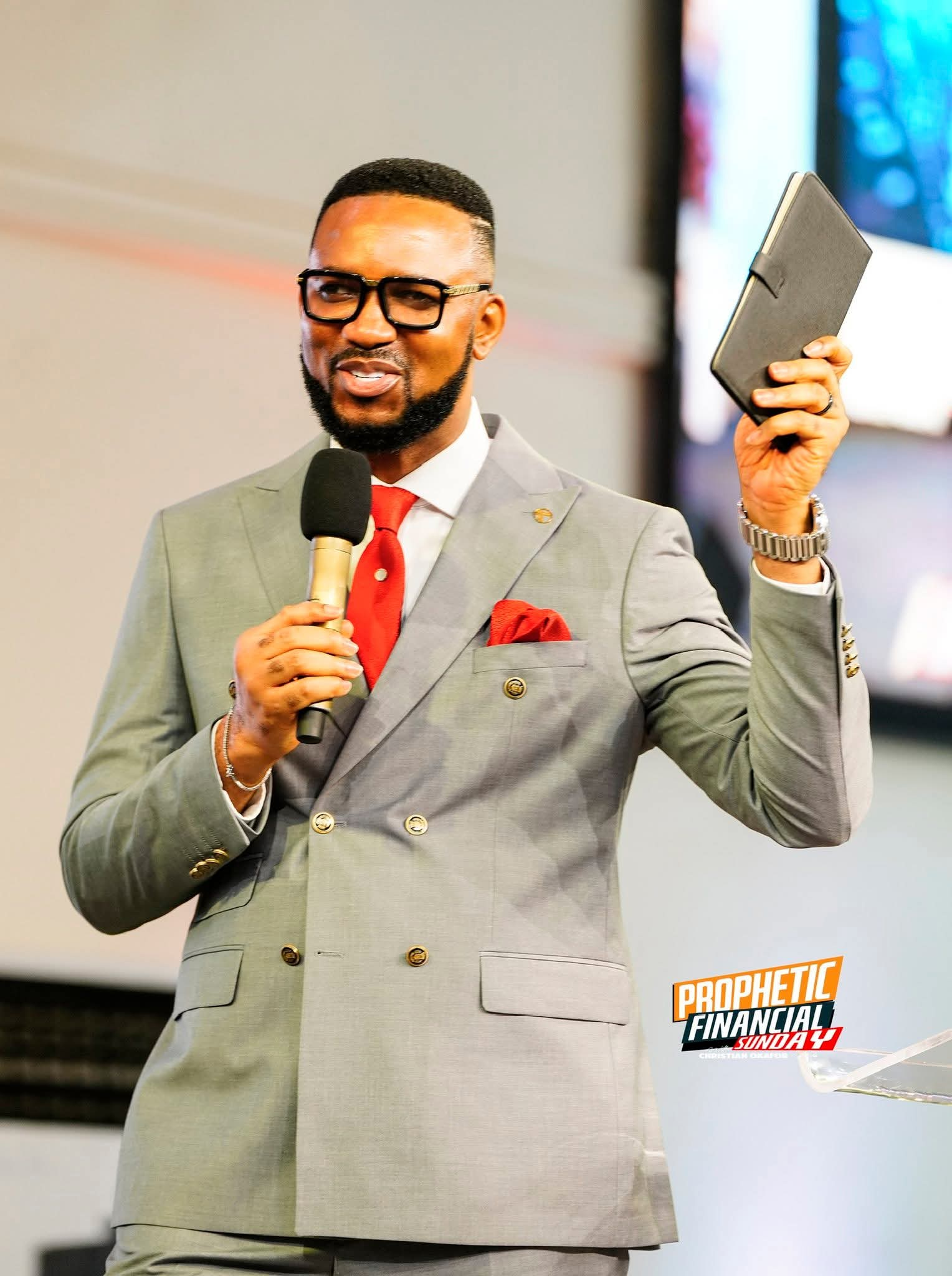
Kingdom Advancement: God Does Not Confirm Lies or Gossip—He Confirms His Word
“When Doing Business with God,
People’s Opinions Do Not Count.”
— Dr. Christian Okafor
The greatest investment any Christian can make is partnering with God. According to the Generational Prophet of God and Senior Pastor of Grace Nation Global, Christopher Okafor, when a believer commits to serving and advancing God’s kingdom, no barrier, lie, gossip, or blackmail can prevail against them.
This message was delivered during the Prophetic Financial Sunday Service held on February 15, 2026, at the international headquarters of Grace Nation Worldwide in Ojodu Berger, Lagos, Nigeria.
Doing Business with God
Teaching on the theme “Kingdom Advancement” with the subtitle “Doing Business with God,” Dr. Okafor emphasized that when a believer enters into covenant partnership with God, divine backing becomes inevitable.
“God is still in the business of covenant,” he declared. “When you make a covenant with Him, He honors the terms. When you win souls into the kingdom and remain committed to His work, He rewards you with what you could never achieve by your own strength.”
The Man of God stressed that God does not confirm lies, gossip, or negative narratives—He confirms His Word. Therefore, anyone genuinely committed to kingdom business should not be distracted by public opinion.
“No matter the blackmail or falsehood circulating around you, if you are focused on God’s assignment, those attacks will only strengthen you,” he stated.
He further noted that a believer’s understanding of God’s covenant determines their experience. “Your mentality about God’s covenant becomes your reality. When you truly know the God you serve, no devil can move you.”
Biblical Examples of Kingdom Partnership
Dr. Okafor cited several biblical figures who prospered through their partnership with God:
Abel
Abel served God with sincerity and offered his very best. His sacrifice pleased God, demonstrating that when a master is honored, he responds with favor.
David
David’s heart was fully devoted to God, and in return, God’s presence and favor rested upon him throughout his life.
Hannah
Hannah made a covenant with God, promising that if He blessed her with a child, she would dedicate him to His service. After fulfilling her vow, God rewarded her abundantly, blessing her with additional children.
Peter
Peter, a professional fisherman, surrendered his boat at Jesus’ request for kingdom work. Through that act of partnership and obedience, he experienced supernatural provision and divine elevation.
Conclusion
In closing, Dr. Okafor emphasized that one’s approach to God’s covenant determines the level of success and prosperity experienced. Commitment to kingdom advancement secures divine confirmation and supernatural results.
The Prophetic Financial Sunday Service was marked by prophetic declarations, deliverance, healings, miracles, restoration, and solutions to diverse cases presented before Elohim.
celebrity radar - gossips
At 55, Omoyele Sowore Remains a Defiant Voice of Conscience
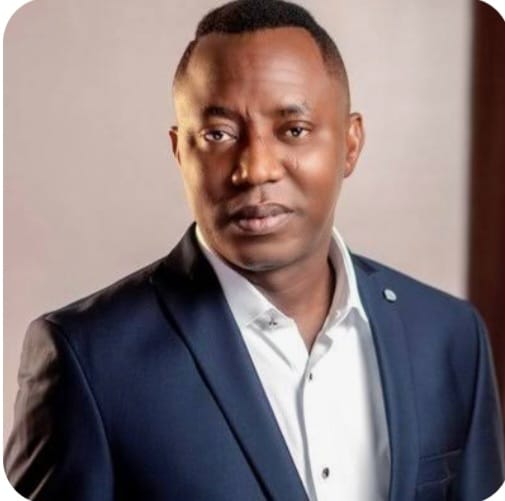
At 55, Omoyele Sowore Remains a Defiant Voice of Conscience
By George Omagbemi Sylvester | Published by SaharaWeeklyNG
“SaharaWeeklyNG Management and Staff Salute a Relentless Campaigner for Justice and Democratic Accountability.”
As activist, journalist and politician Omoyele Sowore marks his 55th birthday, the management and staff of SaharaWeeklyNG join millions of Nigerians at home and in the diaspora to celebrate a man widely regarded as one of the most persistent and fearless voices for democratic accountability in modern Nigeria.
Born on February 16, 1971, in Ondo State, Sowore rose from student activism at the University of Lagos to become one of the country’s most recognisable pro-democracy figures. His early involvement in the student movement during the military era of the 1990s placed him at the forefront of protests against dictatorship and repression, a role that would shape the course of his life and career.
He later founded Sahara Reporters in 2006, an online investigative platform that quickly gained prominence for exposing corruption, abuse of power and human rights violations. Operating initially from the United States, the outlet became a symbol of citizen journalism and digital activism, publishing stories often ignored or suppressed by mainstream media. Over the years, the platform has reported on high-level corruption cases, electoral malpractices and security failures, earning both praise and fierce criticism from political authorities.
Sowore’s activism took a dramatic turn in 2019 when he contested Nigeria’s presidential election under the African Action Congress (AAC). Although he did not win, the campaign amplified his calls for systemic reform. Months later, he launched the #RevolutionNow movement, a nationwide protest demanding an end to corruption, economic hardship and insecurity.
In August 2019, he was arrested by Nigeria’s Department of State Services (DSS) on charges of treasonable felony. His detention, which lasted several months despite court orders for his release, sparked international condemnation from human rights groups, civil society organisations and foreign observers. The case turned him into a global symbol of resistance against state repression.
Over the years, Sowore has faced multiple arrests, court trials and travel restrictions. Yet he has remained resolute, insisting that his activism is rooted in the constitutional right to freedom of expression and peaceful assembly. Supporters describe him as a principled crusader against injustice, while critics accuse him of political extremism. Regardless of the perspective, his impact on Nigeria’s political discourse is undeniable.
His life’s work echoes the enduring words of Nelson Mandela, who once said, “Freedom is not merely to cast off one’s chains, but to live in a way that respects and enhances the freedom of others.” For many of Sowore’s followers, his sacrifices represent precisely that spirit, an unyielding struggle for a more accountable and equitable society.
Similarly, the philosophy of Martin Luther King Jr. (that “injustice anywhere is a threat to justice everywhere”) resonates deeply with the trajectory of Sowore’s activism. Whether confronting police brutality, electoral irregularities or economic injustice, he has consistently framed his struggle as one for the collective dignity of Nigerians.
Nigerian Nobel laureate Wole Soyinka once observed that “the man dies in all who keep silent in the face of tyranny.” That sentiment captures the essence of Sowore’s public life. For over three decades, he has refused silence, even when it meant imprisonment, harassment and personal sacrifice.
At 55, Sowore’s journey is far from over. He remains active in political advocacy, civil rights campaigns and public commentary, continuing to challenge what he describes as systemic failures in governance and leadership. His career reflects both the promise and the peril of dissent in a fragile democracy; where the line between patriotism and confrontation is often fiercely contested.
On this milestone birthday, SaharaWeeklyNG management and staff recognise Sowore not merely as an individual, but as a symbol of the enduring struggle for transparency, justice, and democratic renewal. His story is one of conviction under pressure, a reminder that the quest for a better society often demands courage, resilience and a willingness to stand alone.
As Nigeria navigates its complex political and economic realities, figures like Sowore continue to shape the national conversation. Whether praised or criticised, his voice remains a constant in the country’s democratic journey; loud, uncompromising and impossible to ignore.
-

 celebrity radar - gossips6 months ago
celebrity radar - gossips6 months agoWhy Babangida’s Hilltop Home Became Nigeria’s Political “Mecca”
-

 society6 months ago
society6 months agoPower is a Loan, Not a Possession: The Sacred Duty of Planting People
-

 society5 months ago
society5 months agoReligion: Africa’s Oldest Weapon of Enslavement and the Forgotten Truth
-

 news6 months ago
news6 months agoTHE APPOINTMENT OF WASIU AYINDE BY THE FEDERAL GOVERNMENT AS AN AMBASSADOR SOUNDS EMBARRASSING




